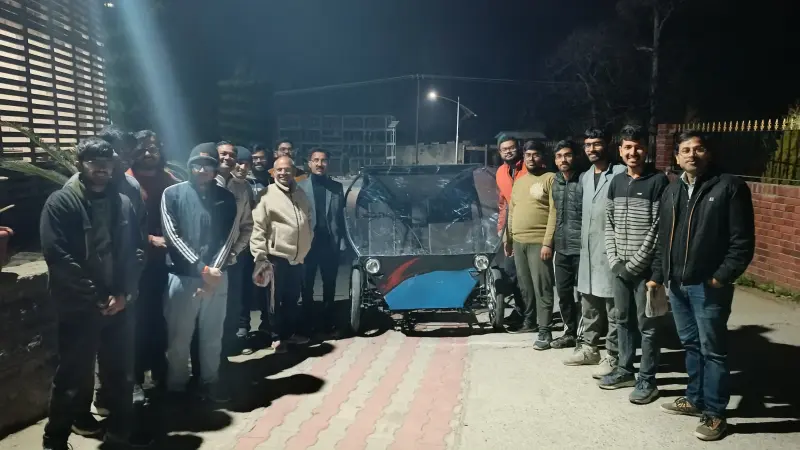Efficycle 2024
Efficycle 2024 is a continuation of a legacy started by our seniors at IIT Mandi. Under the mentorship of Dr. Gajendra Singh and the leadership of Mr. Keshav Verma, we refined the basic prototype into a fully functional vehicle. Efficycle is designed to operate both manually (pedal-powered) and electrically (battery-powered). This dual-mode functionality makes it a unique, environmentally friendly vehicle that is less labor-intensive compared to conventional bicycles.
Steering
The steering mechanism of Efficycle underwent significant refinement from previous iterations. After testing various options, we settled on an Ackermann steering system, commonly used in tractors. This system minimized steering effort and reduced the need for excessive wheel rotation, making it more suited to our unique design requirements.
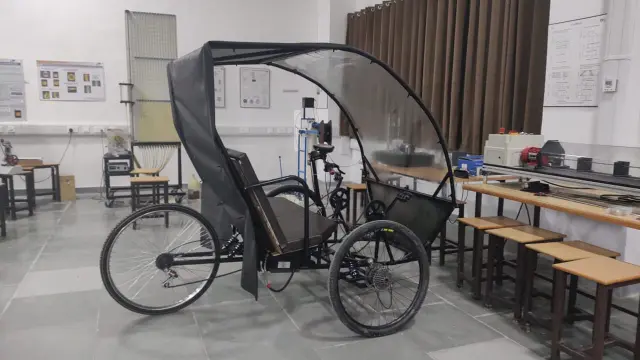
Suspension
We opted for a double wishbone suspension system for the front wheels and a fork suspension for the rear wheel. This design choice was carefully evaluated using Lotus software to determine the ideal camber and caster angles. The suspension was then tested in ANSYS to ensure it could withstand the forces encountered during operation without bending or making contact with other components.
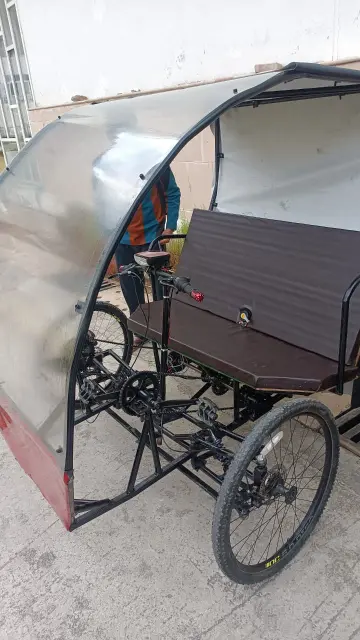
Chassis Design
The chassis design of Efficycle was created using SolidWorks, allowing us to visualize the final prototype and identify potential design issues early on. After completing the CAD design, we moved to ANSYS for Finite Element Analysis (FEA) to simulate the vehicle's behavior under various loading conditions. This analysis helped in understanding stress distribution and potential impacts on the rider in different scenarios.
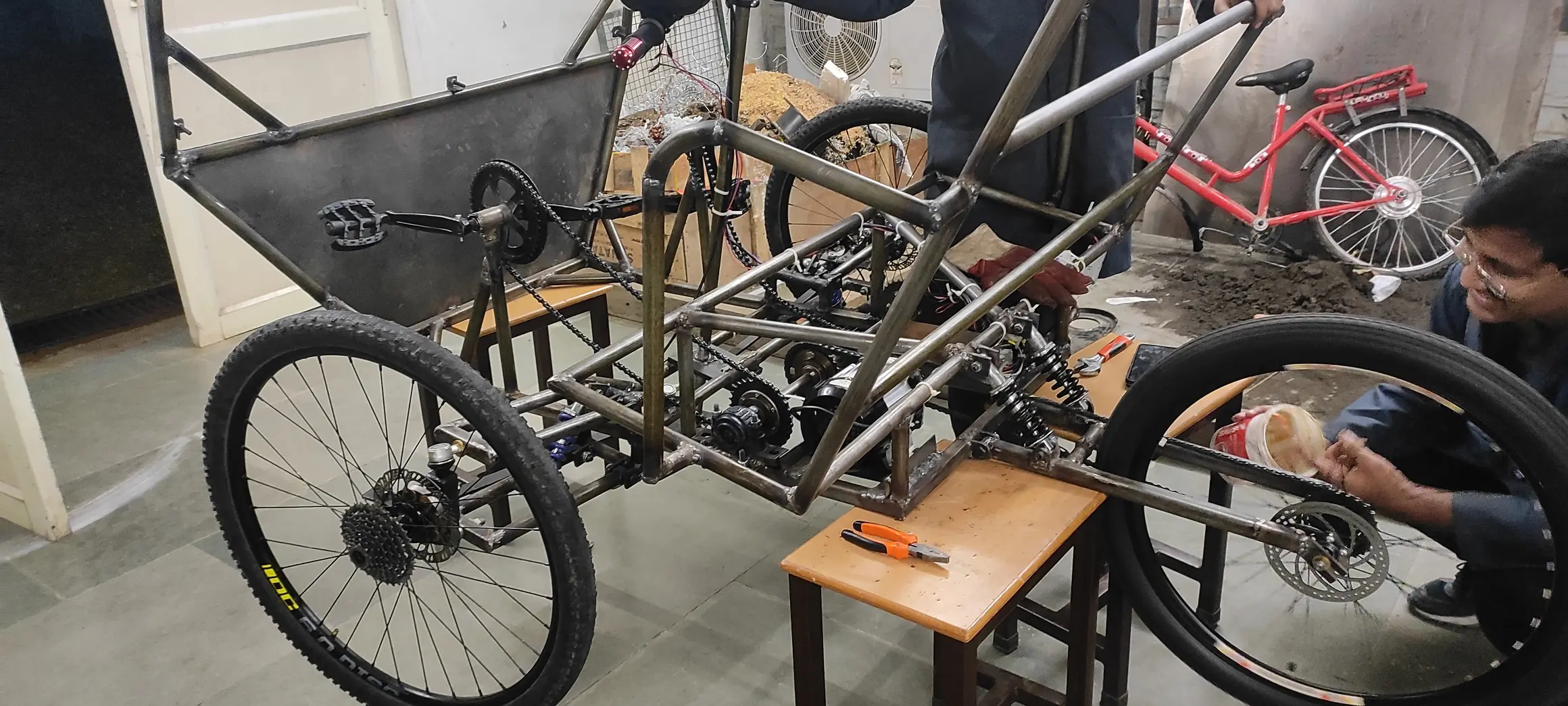
Wheel and Braking System
After extensive research into wheels, we selected R20–2-inch wheels for the front, although initial trials showed that these could not handle the required weight. Finally, we used wheels from Splendor Bike for the front wheels, providing better weight distribution and pre-installed drum brakes. For the rear wheel, we chose an R28-1.5-inch wheel after facing availability and cost challenges. The braking system is custom-designed, featuring a combi brake setup that evenly distributes braking forces across the front wheels, ensuring safety and stability.
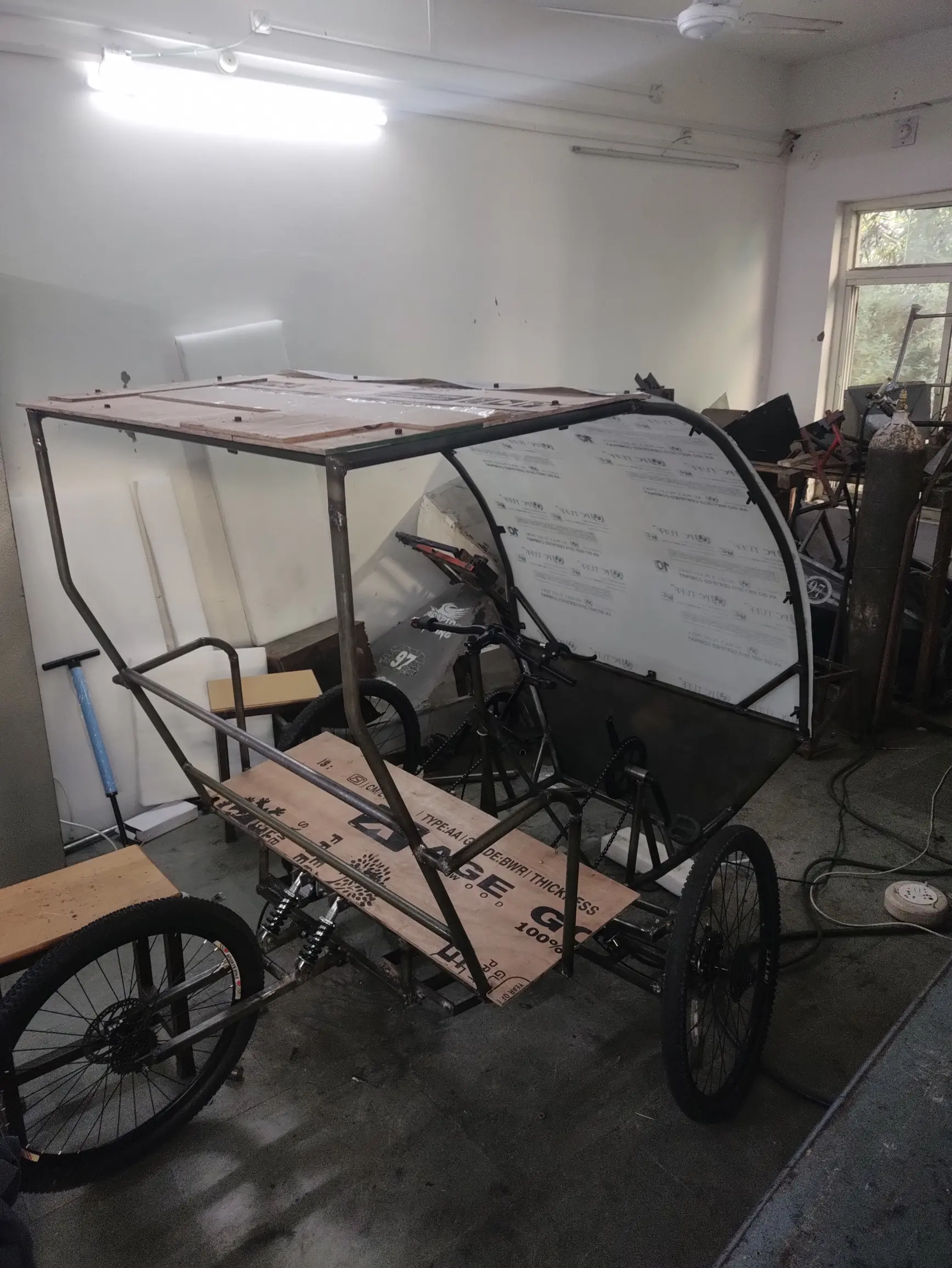
Power Transmission
The power transmission system faced challenges in the previous iteration due to bending of the power shaft under torque. To resolve this, we custom-designed a robust power shaft made of mild steel with a 35 mm radius. This modification eliminated the bending issue, ensuring smooth power delivery from the motor to the wheels. The system incorporates six gears and two power shafts, enabling the vehicle to switch between manual pedaling and electric power seamlessly.
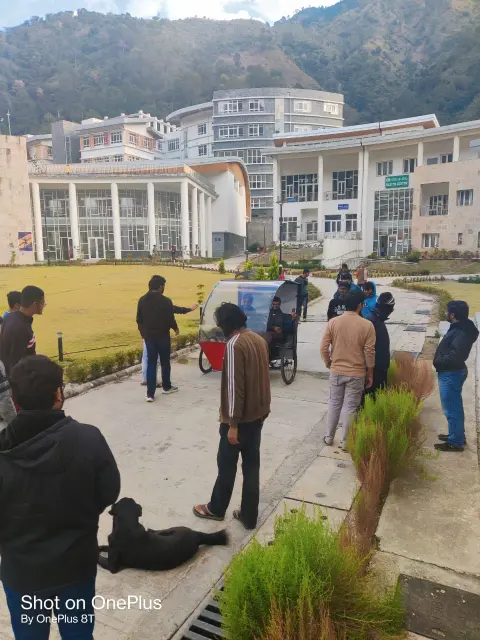
Manufacturing Process
The manufacturing process involved a series of in-house productions, including the chassis, suspension components, steering, and power transmission system. The tubular chassis was fabricated using precise measurements and welding. The suspension system, including wishbones and fork suspension, was also custom-built in the IIT Mandi workshop, ensuring a perfect fit for the vehicle’s requirements. The most complex part was manufacturing the Ackermann steering, which required precise cutting and assembly to ensure accurate steering geometry.
